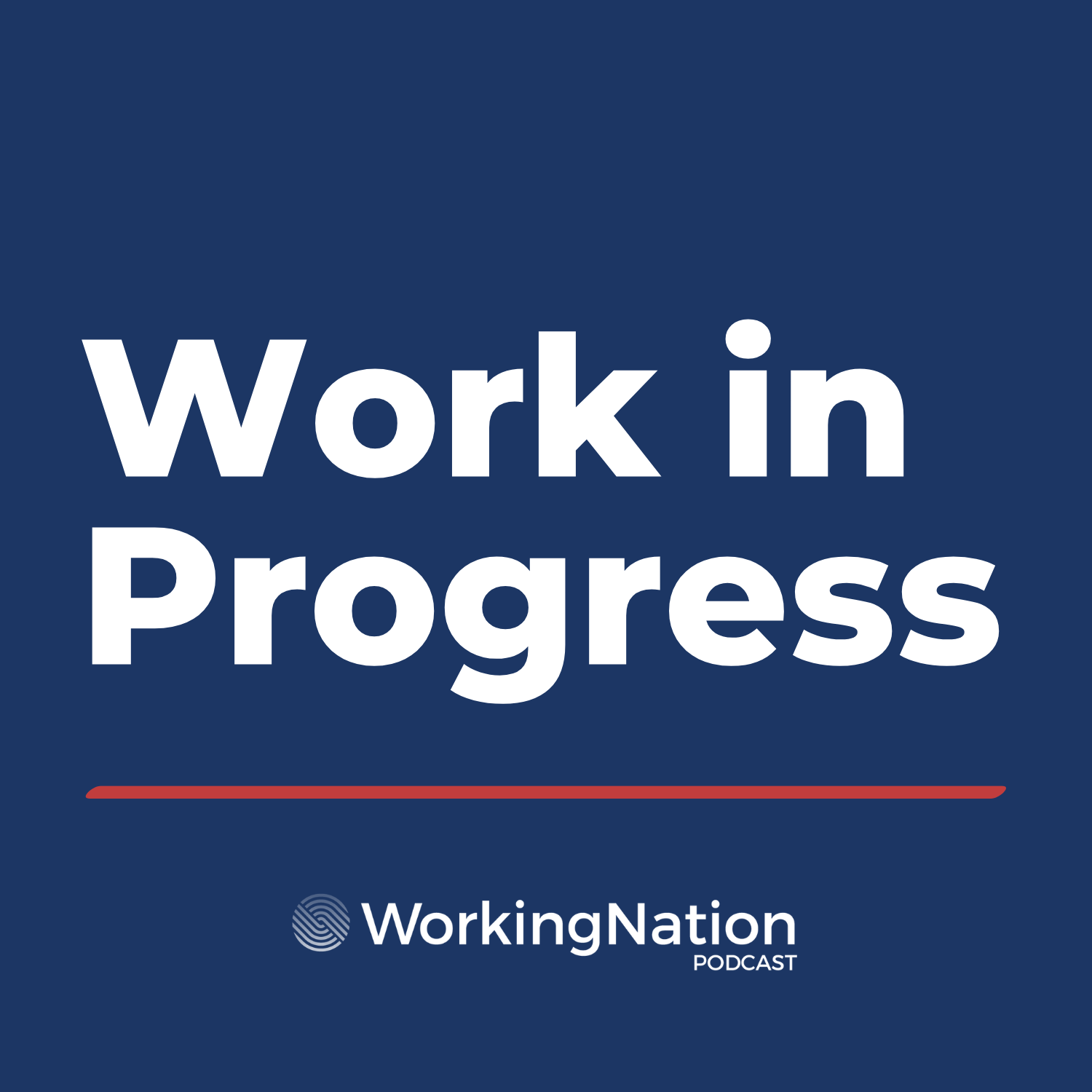The potential impact of AI on the way we do our jobs
Description
In this episode of the Work in Progress podcast, I am joined by Vilas Dhar, president, Patrick J. McGovern Foundation and a global expert on AI, equity, and how artificial intelligence is shaping our society. We sat down at the Aspen Ideas Festival in June to discuss whether AI is having a positive or negative impact on the workforce.
Vilas Dhar calls the release of ChatGPT an important social moment, not a technological one.
"AI didn't start in November of 2022. Researchers, scholars, people like me, have been building AI products for decades," says Dhar.
"AI moved out of the background, out of the shadows, and became something that every person on the planet could touch, feel, interact with, see how it might influence their lives. And because of that, we entered into this new phase of a discussion that moved from 'What does the technology do?' to 'What do humans have to do to be ready for the technology? and "What kind of society do we want to build and how will AI help us get there?"
He emphasizes the need for a diverse range of stakeholders, including technologists, policymakers, civil society, communities, employers, and workers, to be involved in shaping the future of AI and how any changes it brings are equitable ones.
Dhar challenges the notion that AI will necessarily lead to job displacement, highlighting the potential for AI to enhance human capabilities and create new opportunities by automating mundane or dangerous tasks, freeing up time for creativity and innovation, and improving health care and community services.
He calls for a shift in the narrative around AI from fear and risk to one of public investment and public ownership.
"It's a moment in time where we can actually use it to force a bigger conversation about equality and equity, about how we distribute economic benefits, about the fact that if we think somebody is going to be displaced, what's the responsibility of the person who displaced them?
"Note that I didn't say the machine that displaced them, but the person who made a choice to bring in a machine that displaced that worker. How do we think about creating a new social compact so that every person feels dignified and participatory in the decisions we're making about our AI future? If we were to start having those conversations, I'd be so hopeful about our future," he adds.
Dhar has a lot more to say about why we need to change our thinking around artificial intelligence and how it can be a benefit to workers. You can listen in our conversation here, or get it wherever you get your podcasts.
You can also find it on my Work in Progress YouTube channel.
This podcast was recorded at the Aspen Ideas Festival, in collaboration with the Aspen Institute.
Episode 324: Vilas Dhar, president, Patrick J. McGovern FoundationHost & Executive Producer: Ramona Schindelheim, Editor-in-Chief, WorkingNationProducer: Larry BuhlTheme Music: Composed by Lee Rosevere and licensed under CC by 4Transcript: Download the transcript for this episode hereWork in Progress Podcast: Catch up on previous episodes here
More Episodes
In the final episode of the Work in Progress podcast series The Manufacturing Comeback, we look at how employers are recruiting and training veterans and women to fill jobs in the manufacturing industry.
Employers Anticipate a Surge in Hiring in Manufacturing
On my recent trip to...
Published 11/26/24
Published 11/19/24
This is Episode Two of The Manufacturing Comeback, a three-part Work in Progress podcast series. The series takes you inside the surge in hiring in the manufacturing industry. In this episode, we look at how small manufacturers are recruiting and training workers.
Small Companies are...
Published 11/19/24


